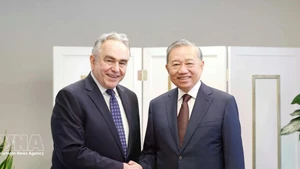Speaking to the Viet Nam News Agency (VNA)'s resident reporter on the occasion of the 80th anniversary of the August Revolution (August 19, 1945) and Viet Nam’s National Day (September 2), Enzo said that before gaining independence, Viet Nam had endured decades of colonial rule under France. Since 1858 when French colonialists came to Viet Nam, the national spirit was kindled and expressed through many patriotic movements, but it was not until the emergence of President Ho Chi Minh as leader of the Indochinese Communist Party (now the Communist Party of Viet Nam) that this strength was consolidated into a nationwide revolution.
The opportunity came after World War II, when Japan ousted the French administration in Indochina in March 1945. For President Ho Chi Minh, both France and Japan were invaders intent on exploiting Viet Nam’s resources. He charted the course for the August Revolution in 1945, which ultimately led to the establishment of the Democratic Republic of Viet Nam (now the Socialist Republic of Viet Nam). This was a profoundly self-determined act, free of external influence, he stressed.
When President Ho Chi Minh proclaimed independence at Ba Dinh Square on September 2, 1945, the young republic soon faced renewed conflict with France. Despite failed negotiations, President Ho Chi Minh remained steadfast, leading the people through years of resistance until the decisive Dien Bien Phu victory in 1954, which forced France to sign the Geneva Accords.
Enzo underlined the significance of the August Revolution, saying Viet Nam was among the first countries in the colonial world to claim independence. President Ho Chi Minh’s Declaration of Independence sent a powerful message to colonised nations that they were entitled to freedom. He shattered the entrenched belief that only Western powers had the right to govern, inspiring anti-colonial movements worldwide, including in Malaysia under British rule at that time.
The expert noted that this spirit of independence continues to guide Viet Nam today. The country has skillfully balanced relations with major powers such as the US and China, while refusing to let external forces dictate its policy decisions. Despite global uncertainties, Viet Nam maintains neutrality and pursues diversified diplomacy, expanding ties with partners ranging from Japan, the Republic of Korea and India to Brazil and other BRICS members.
Economically, Enzo highlighted Viet Nam’s financial autonomy, noting that the country has no outstanding debts to international institutions such as the International Monetary Fund (IMF). This demonstrates its capacity to chart an independent course in all fields.
Viet Nam has also made important contributions to global peace. From a war-torn nation, it has become one of the world’s fastest-growing economies. More significantly, Viet Nam has drawn on its own history to support international peacekeeping efforts, particularly in conflict-affected African countries such as South Sudan and the Central African Republic.
Enzo praised Viet Nam’s practical contributions, including building field hospitals, delivering medical and food aid to refugees, and supporting local infrastructure reconstruction. He noted the special role of Vietnamese female peacekeepers, who have inspired women in host communities and provided hope and reassurance to vulnerable groups, especially women and children displaced by conflicts.
Enzo concluded that Viet Nam’s experience shows how a country once scarred by war can become a source of inspiration for global peace and development. Its resilience, independence and contributions to international stability are achievements that the world should value and learn from.

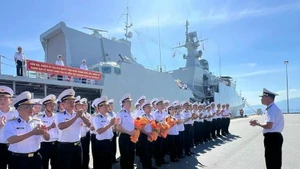
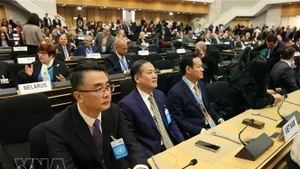
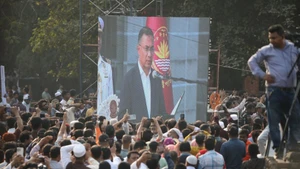
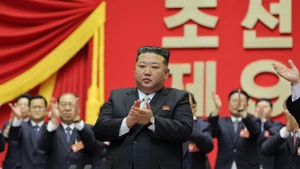
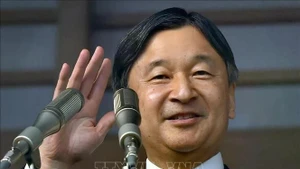
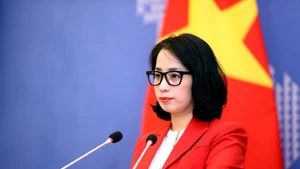

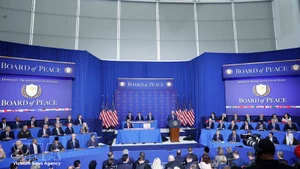
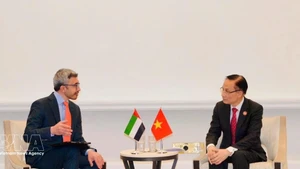
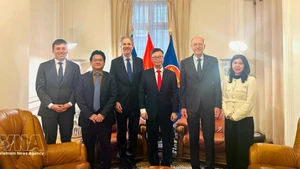
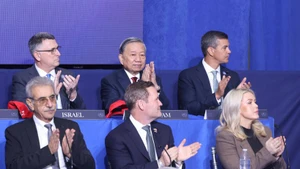
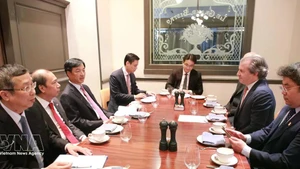
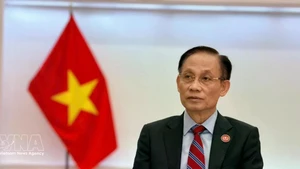
![[In pictures] Party General Secretary To Lam meets US President Donald Trump](https://en-cdn.nhandan.vn/images/dcd63867a0eed4c7753eb4bfb346593abc1ce710dfab8ad1b9aebd75ea6bf930b2ea13e4664779d689ba40aadd80f76d5d05d1208720fd7b0d811ace3a3297321c78cf738400e136e3f2d8790b24d43646e46edbe19517144a88f6ffb0d528f153574a7109328cc0949e4a4c16433c2ff751541639eefe4490518227264cbf8e/vna-potal-tong-bi-thu-to-lam-gap-tong-thong-hoa-ky-donald-trump-8599945.jpg.webp)
